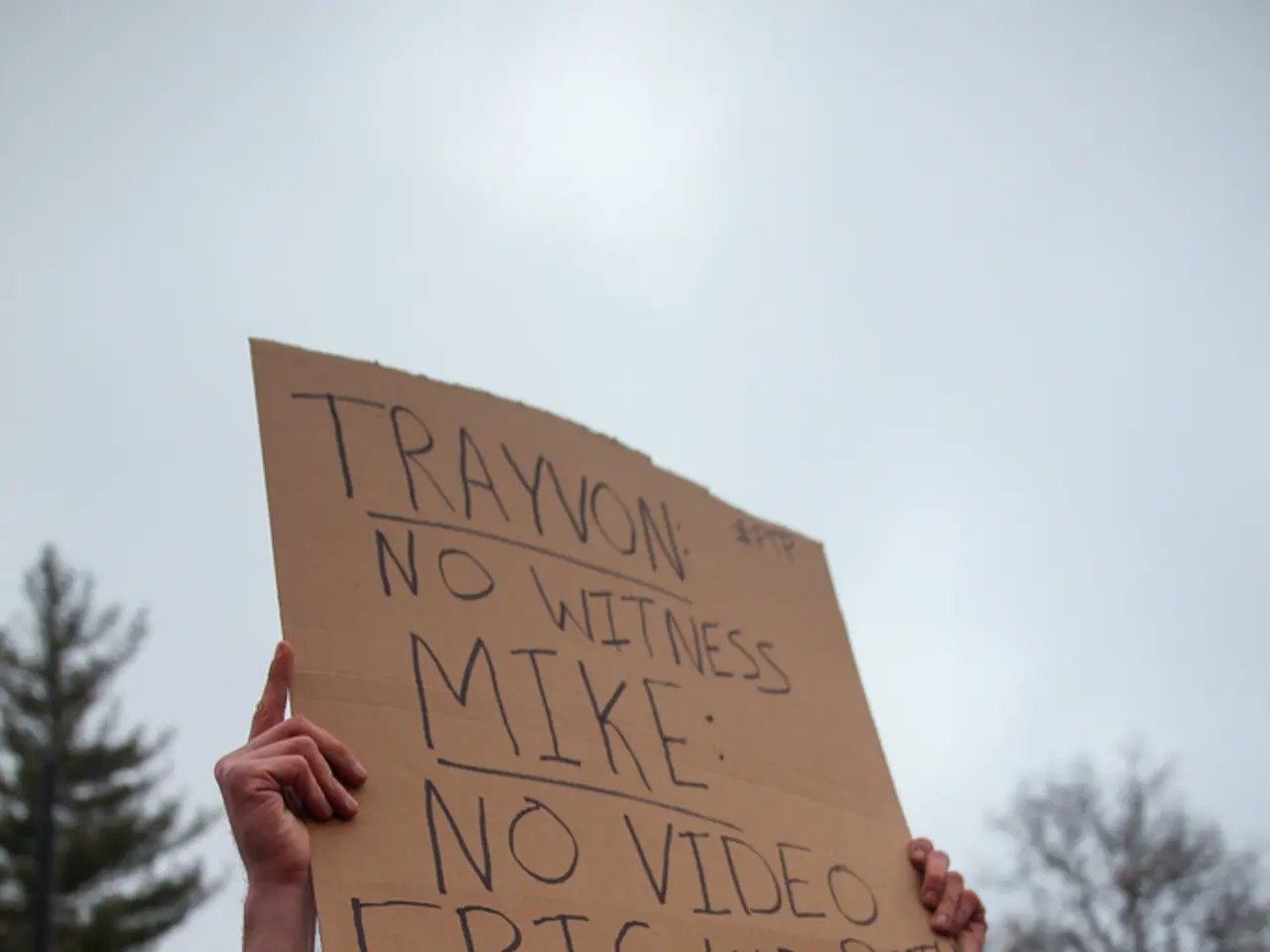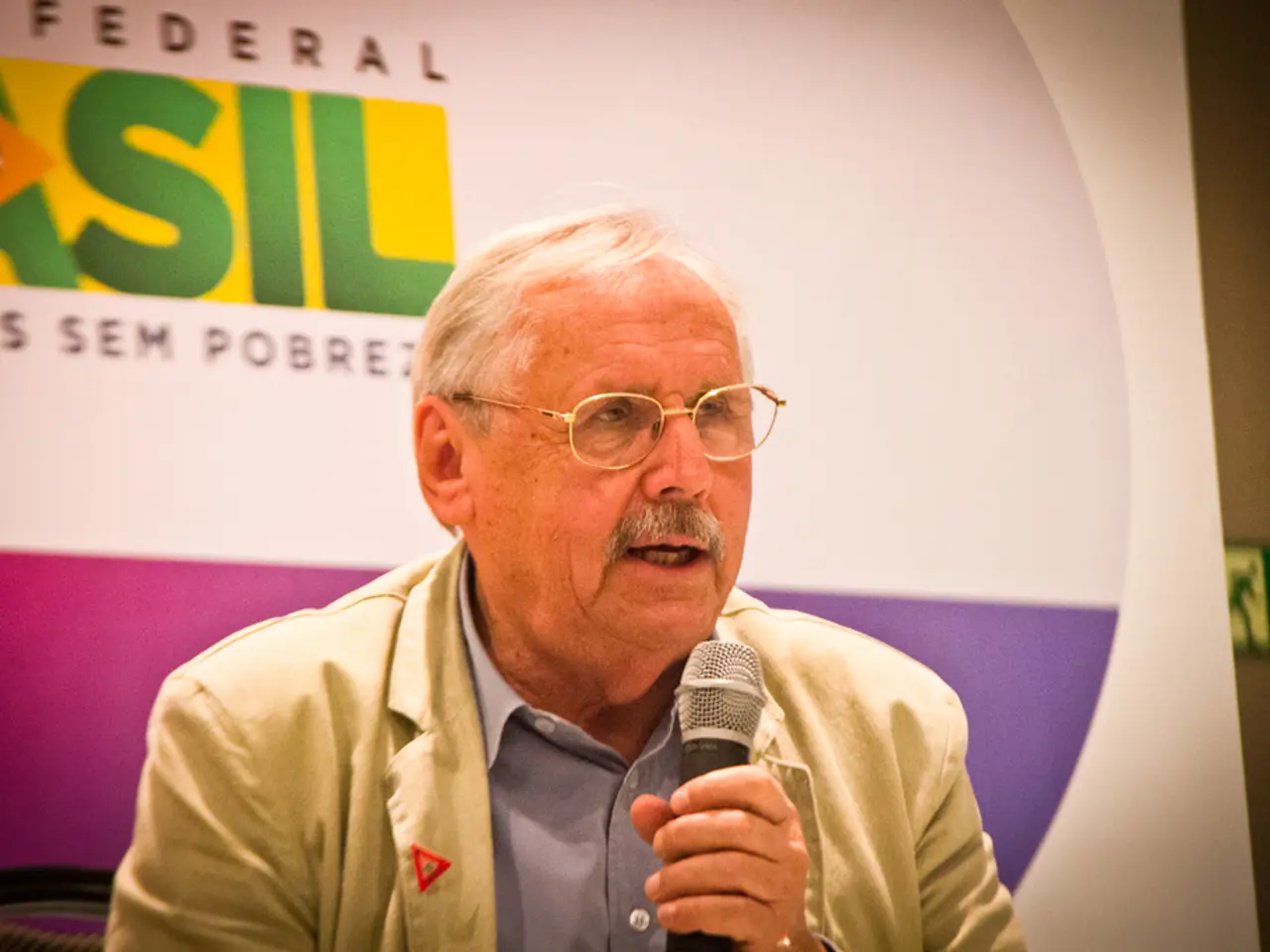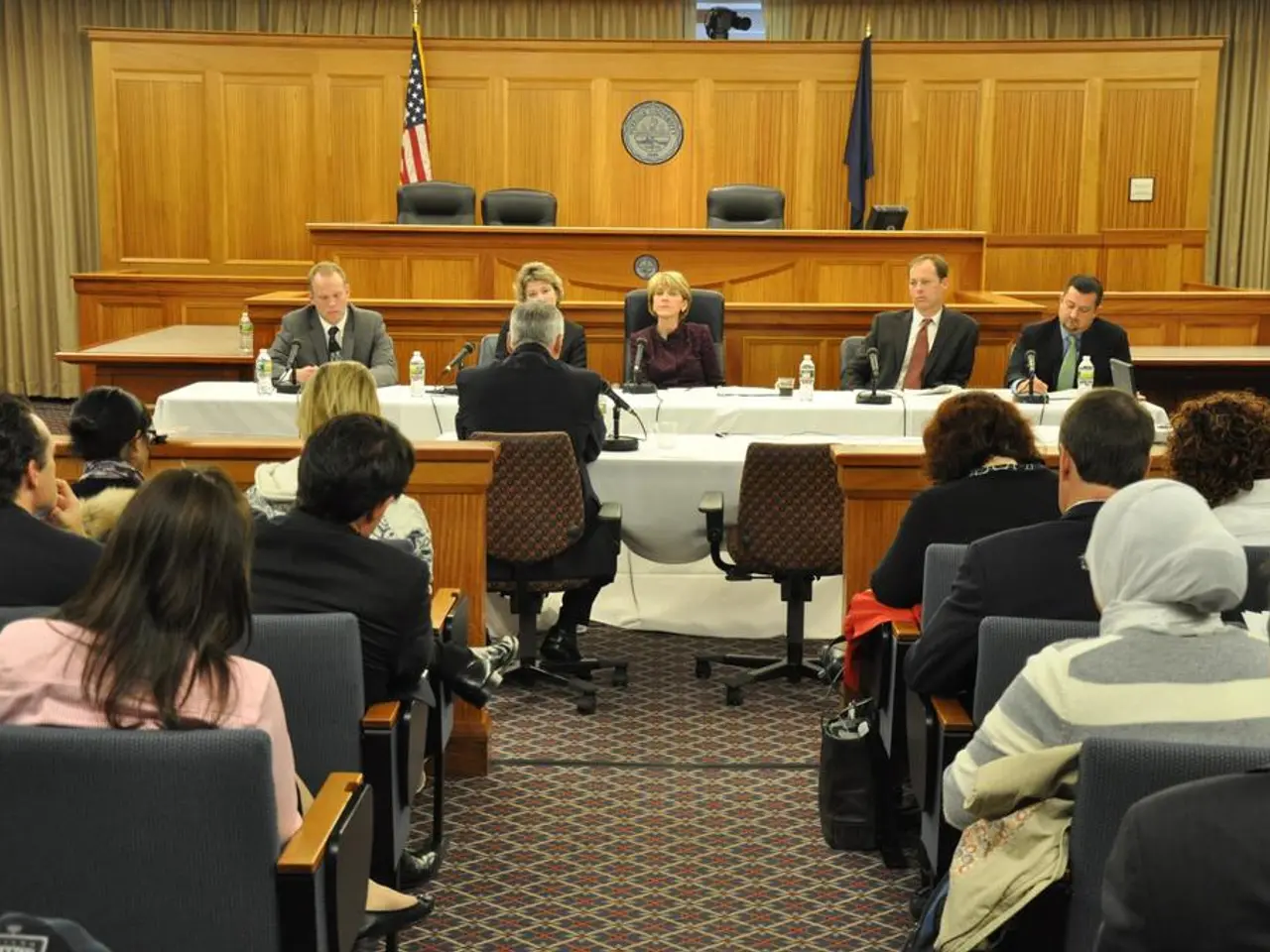Security personnel in Palestine prepare to seize control of Gaza after a conflict has ended
The Middle East is witnessing a significant change as Israel's security cabinet has approved a plan for a full occupation of Gaza City, marking the first phase of a potentially extended occupation of the entire Gaza Strip. The goal, as stated by the Israeli government, is to defeat Hamas, disarm it, and maintain Israeli security control over Gaza even after the combat operations end [1][2].
This decision, internationally viewed as a serious escalation, comes with major humanitarian and political consequences. The operation involves forcibly displacing around 1 million Palestinians in Gaza City and its surroundings, raising concerns about a humanitarian catastrophe [1]. Israel promises to provide humanitarian aid outside combat zones but plans a security perimeter and intends to hand over governance to "Arab forces" other than Hamas or the Palestinian Authority [1].
International concerns focus on the humanitarian impact, the scale of displacement, and the long-term implications for Gaza’s political future. The plan’s focus on establishing an alternative civilian government not linked to Hamas or the PA signals a reshaping of Gaza’s governance with uncertain regional and international reactions [1].
In Ramallah, the Palestinian Authority (PA) is effectively sidelined by this decision, which explicitly excludes the PA from the governance of Gaza following the occupation. This exclusion deepens the divide between Gaza (historically governed by Hamas since 2007) and the West Bank authorities in Ramallah [1]. The occupation and accompanying plan undermine the PA’s claim to represent Palestinians nationally and weaken its political authority [1].
Netanyahu’s aim to hand Gaza over to neither Hamas nor the PA challenges Ramallah’s political relevance and may deepen Palestinian internal divisions [1]. The PA in Ramallah is likely to view the occupation as both a political threat and a humanitarian crisis, as it complicates Palestinian efforts to unify governance and resist Israeli policies collectively [1].
Meanwhile, Palestinian security forces are training in various countries in the region for entry into Gaza after the end of the war between Israel and Hamas. Palestinian General Anuar Rajab will lead part of these forces [3]. The Palestinian Authority asserts that Hamas cannot be part of the political future of Palestine [3].
This complex situation underscores the deepening divisions within the Palestinian territory and the Middle East as a whole. The international community is closely monitoring the situation, with hopes for a peaceful resolution that respects the rights and dignity of all parties involved.
[1] International Perspective on the Occupation of Gaza City [2] Ramallah-based Palestinian Authority's Response to the Occupation [3] Palestinian Security Forces Prepare for Gaza Entry Post-Conflict
The approval of Israel's security cabinet to occupy Gaza City, marked as the first phase of a potential extended occupation of the Gaza Strip, has sparked international concern and political ramifications, as it signals a reshaping of Gaza's governance and deepens divisions within the Palestinian territory. The Palestinian Authority in Ramallah is likely to view the occupation as both a political threat and a humanitarian crisis, as it complicates Palestinian efforts to unify governance and resist Israeli policies collectively.
The international community, closely monitoring this complex situation, hopes for a peaceful resolution that respects the rights and dignity of all parties involved, particularly amid war-and-conflicts discussions and general news focusing on the humanitarian impact, the scale of displacement, and the long-term implications for Gaza’s political future.







